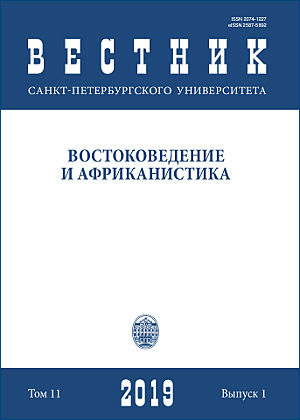East Syriac Literary Life in the mid-16th Century: ‘Abdīšō‘ of Gāzartā and Older Contemporary Poets
DOI:
https://doi.org/10.21638/spbu13.2019.107Abstract
The article discusses the East Syriac literary circle of the of the early Ottoman Empire period. Its most important representative is ʿAbdīšōʿ of Gāzartā, the second patriarch of the new Church (1555–1570), and also an outstanding poet, whose legacy remains to a large extent unstudied, though. Even less is known about the works of his contemporaries, such as Darwīš of Gāzartā, Abrāhām of Bēt Slōk and ʿAṭāyā of Gāzartā. They communicated with him, and devoted his poems at least to the first two of them, despite their belonging to the traditionalist (“Nestorian”) patriarchate. Based on the texts and manuscripts unknown before, the paper shows in the article that the literary circle of that period was determined not by the Church affiliation, but rather geographically. ʿAbdīšōʿ as well as the poets he communicated with originated from the town of Gāzartā (North Mesopotamia, present Turkey) or from its neighbourhood, and some of them might have been his relatives. As a result of the long coexistence with Persian and Arabic Islamic culture, the sphere of use of poetry in the Syriac tradition was expanding in the next centuries. Its further development in the 16th century is one of numerous examples of wide use of the literary canons created in the period of so-called Syriac Renaissance (11th –14th centuries). In the Ottoman time, the extension of poetry use reached its apogee, taking into consideration also numerous short poems written by the scribes as verse additions to various manuscripts.
Keywords:
Syriac poetry, Chaldean Church, Christian communities in the Ottoman Empire, Gāzartā literary circle, monastic literature, manuscript transmission
Downloads
References
Downloads
Published
How to Cite
Issue
Section
License
Articles of "Vestnik of Saint Petersburg University. Asian and African Studies" are open access distributed under the terms of the License Agreement with Saint Petersburg State University, which permits to the authors unrestricted distribution and self-archiving free of charge.





